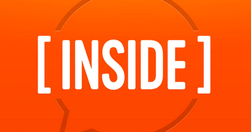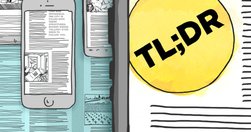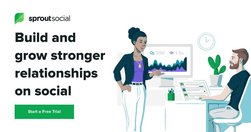Filter 876 resources:
- facebook (337)
- media (127)
- social media (121)
- news (117)
- comments (94)
- disinformation (87)
- community (83)
- medium (75)
- bot (73)
- participation (58)
- algorithm (54)
- mobile (53)
- filter bubble (51)
- data visualisation (42)
- ai (40)
- content strategy (38)
- design (36)
- tool (31)
- eu (30)
- blogging (30)
- curation (29)
- troll (29)
- instant articles (26)
- twitter (26)
- us2020 (26)
- privacy (25)
- platform (25)
- psychology (25)
- politics (23)
- interactive (23)
- promotion (22)
- google (21)
- journalism (20)
- web (20)
- factchecking (20)
- democracy (20)
- advertising (19)
- covid19 (19)
- video (17)
- storytelling (17)
- transparency (17)
- metrics (17)
- regulation (16)
- audiovisual (16)
- ux (16)
- ocm (16)
- analytics (15)
- cms (15)
- data (15)
- trump (14)
- app (14)
- censorship (14)
- trust (14)
- newsletter (13)
- attentionweb (13)
- open web (13)
- amp (13)
- information architecture (13)
- realtime (12)
- data journalism (12)
- animation (12)
- conspiracy (12)
- us (12)
- engagement (12)
- blog (12)
- gamification (11)
- semantic (11)
- egovernment (11)
- linkedin (11)
- native advertising (11)
- livestream (11)
- nytimes (10)
- strategy (10)
- enewsletter (10)
- deletefacebook (9)
- communications (9)
- innovation (9)
- cofoe (9)
- evidence-based policy (9)
- content marketing (9)
- technology (9)
- cambridge analytica (9)
- polarization (8)
- online architecture (8)
- policy (8)
- bloggingportal (8)
- longform (7)
- open source (7)
- minimalist (7)
- productivity (7)
- html5 (7)
- science (7)
- hate (7)
- content (7)
- machine learning (7)
- k4p (7)
- moderation (7)
- myhub (7)
- tv (7)
- newsroom (6)
- delegitimise (6)
- google analytics (6)
- notification (6)
- interface (6)
- web design (6)
- apple (6)
- ec (5)
- ewrc2017 (5)
- blockchain (5)
- qanon (5)
- addiction (5)
- cognitive (5)
- backfire effect (5)
- nlp (5)
- instagram (5)
- knowledge management (5)
- messaging (5)
- peakbot (5)
- augmented reality (5)
- quartz (5)
- event (5)
- ethics (5)
- ea (5)
- clickbait (5)
- guide (4)
- coral (4)
- snapchat (4)
- chat (4)
- psychometrics (4)
- information (4)
- gender (4)
- free (4)
- ai4communities (4)
- marketing (4)
- identity (4)
- ello (4)
- facebook live (4)
- surveillance (4)
- fbpaper (4)
- cookies (4)
- cards (4)
- mybot (4)
- visualisation (4)
- viral (4)
- fediverse (4)
- multilingualism (4)
- sentiment analysis (4)
- science communication (4)
- social marketing (3)
- humour (3)
- digital transformation (3)
- management (3)
- startup (3)
- propaganda (3)
- ui (3)
- conversational (3)
- business model (3)
- audience research (3)
- agile (3)
- publicsphere (3)
- free speech (3)
- internal communications (3)
- big data (3)
- pay4content (3)
- science journalism (3)
- local (3)
- climate (3)
- stream (3)
- buzzfeed (3)
- live (3)
- visual (3)
- uk (3)
- multimedia (3)
- paywall (3)
- conversation (3)
- slack (3)
- copyright (3)
- gdpr (3)
- authenticity (3)
- future (3)
- europcom (3)
- publication (3)
- b2b4me (3)
- election (3)
- ep (3)
- amazon (3)
- responsive (3)
- fblabrats (3)
- paper (3)
- publicsector (3)
- letters2eu (3)
- vandenbrande (3)
- brussels bubble (3)
- collective intelligence (3)
- antitrust (3)
- 2ndbrain (3)
- roamresearch (3)
- echo chamber (3)
- domestic (3)
- listicle (2)
- gawker (2)
- narratives (2)
- twitterenvy (2)
- rss (2)
- nsa (2)
- youth (2)
- ft (2)
- bias (2)
- machine text (2)
- lobby (2)
- youtube (2)
- deep fake (2)
- campaign (2)
- brand (2)
- society (2)
- trending (2)
- zettelkasten (2)
- reddit (2)
- project management (2)
- infographic (2)
- text (2)
- government (2)
- blm (2)
- persuasion (2)
- leadership (2)
- livefyre (2)
- network effect (2)
- bestof2015 (2)
- suppress (2)
- media literacy (2)
- publishing (2)
- canonical debate lab (2)
- credibility (2)
- filter (2)
- groupthink (2)
- brexit (2)
- pilot (2)
- collaboration (2)
- headline (2)
- statistics (2)
- adblock (2)
- mvp (2)
- partisan (2)
- seo (2)
- buzzbot (2)
- faq (2)
- eci (2)
- 3d (2)
- andy matuschak (2)
- jeff jarvis (2)
- hoax (2)
- team (2)
- influence (2)
- tumblr (2)
- gif (2)
- vote (2)
- happiness (2)
- fascism (2)
- cory doctorow (2)
- monopoly (2)
- wearable (2)
- interoperability (2)
- training (2)
- software (2)
- narcissism (2)
- populism (2)
- tribe (2)
- cor (2)
- crowdsourcing (2)
- scrollytelling (2)
- data4policy (2)
- mastodon (2)
- moments (2)
- feed (1)
- mixed reality (1)
- data enrichment (1)
- stack overflow (1)
- seamful (1)
- micro-moment (1)
- d2d (1)
- counter speech (1)
- willpower (1)
- intranet (1)
- datamining (1)
- apple news (1)
- upday (1)
- samsung (1)
- signaltonoise (1)
- webgl (1)
- syndication (1)
- mooc (1)
- membership (1)
- diig (1)
- dao (1)
- smartcities (1)
- epsc (1)
- autonomous (1)
- referendum (1)
- knowledge visualisation (1)
- homepage (1)
- cx (1)
- assist (1)
- europe (1)
- fiction (1)
- tag (1)
- usa (1)
- elon musk (1)
- editorial (1)
- keyword (1)
- buffer (1)
- hype (1)
- ixd (1)
- crisis (1)
- reinventing (1)
- image (1)
- egov (1)
- digg (1)
- self-management (1)
- economics (1)
- open science (1)
- knowledge graph (1)
- d3 (1)
- explainer (1)
- context (1)
- fotl (1)
- millennials (1)
- car (1)
- traffic (1)
- iot (1)
- europa (1)
- ma parent (1)
- roi (1)
- hyperknowledge (1)
- eparltv (1)
- i-book (1)
- photography (1)
- eptv (1)
- trends (1)
- social login (1)
- consultation (1)
- lgbt (1)
- shortform (1)
- icebucketchallenge (1)
- confirmation bias (1)
- google+ (1)
- paid (1)
- chatgpt (1)
- theme (1)
- kpi (1)
- portal (1)
- timeline (1)
- paradigm (1)
- anonymity (1)
- archive (1)
- wayback (1)
- ipad (1)
- taxonomy (1)
- linked data (1)
- ecas (1)
- register (1)
- screencast (1)
- adaptive (1)
- liquid (1)
- chinese (1)
- upworthy (1)
- cmv (1)
- llm (1)
- civil rights (1)
- right (1)
- expiration (1)
- governance (1)
- bloom (1)
- faceted search (1)
- snowden (1)
- internet of things (1)
- convert (1)
- cro (1)
- game (1)
- basic (1)
- customers (1)
- votewatch (1)
- mep (1)
- top3pods (1)
- web2.0 (1)
- podcast (1)
- agent (1)
- mojo (1)
- supergirl (1)
- grassroots (1)
- experiment (1)
- cultural exchange (1)
- humility (1)
- curatorbot (1)
- messenger (1)
- osmo (1)
- language technology (1)
- learn (1)
- debatehub (1)
- ep2014 (1)
- sensecraft (1)
- roaming (1)
- ip (1)
- eesc (1)
- nhscitizen (1)
- visualization (1)
- colfdusion (1)
- (1)
- eu09vs19 (1)
- migration (1)
- sortition (1)
- popvox (1)
- decentralised (1)
- report (1)
- bookmarklet (1)
- post-alpha (1)
- hosted (1)
- geofence (1)
- blackpr (1)
- joan westenberg (1)
- cohesion (1)
- eu2024 (1)
- threadapalooza (1)
- gatsby (1)
- substack (1)
- creativity (1)
- virtual reality (1)
- nz (1)
- sage (1)
- antivaxxer (1)
- rail (1)
- intuition (1)
- model collapse (1)
- circuit-breaker (1)
- at4democracy (1)
- pink slime (1)
- usability (1)
- flicc (1)
- ginsburg (1)
- participatory culture (1)
- ghost (1)
- myanmar (1)
- arg (1)
- floc (1)
- standards (1)
- w3c (1)
- crowdtangle (1)
- github (1)
- opengov (1)
- web development (1)
- motivated (1)
- mobocracy (1)
- demographics (1)
- airbnb (1)
- perception (1)
- crowdfunding (1)
- writing (1)
- quora (1)
- debunk (1)
- inoculation (1)
- comics (1)
- optimisation (1)
- 360video (1)
- metaverse (1)
- spambot (1)
- label (1)
- region (1)
- ipr (1)
- sceptic (1)
- stacked note (1)
- ibm (1)
- intro (1)
- uber (1)
- conference (1)
- design thinking (1)
- jobtodo (1)
- eurosceptics (1)
- customer support (1)
- machine translation (1)
- complex (1)
- automation (1)
- tutorial (1)
- gds (1)
- learning (1)
- khub (1)
- ideation (1)
- euractiv (1)
- empathy (1)
- opinion (1)
- russia (1)
- microsoft (1)
- physics (1)
- holacracy (1)
- reflect (1)
- quiz (1)
- transmedia (1)
- snowfall (1)
- coda (1)
- bbc (1)
- blogpocalypse (1)
- disruption (1)
- hoaxy (1)
- share (1)
- notion (1)
- scandinavia (1)
- competition (1)
- facial blindness (1)
- capgras (1)
- health (1)
- emotion (1)
- how to (1)
- logo (1)
- periscope (1)
- deadbot (1)
- craft (1)
- loyalty (1)
- impact (1)
- vox (1)
- prototype (1)
- knowledge panel (1)
- telegram (1)
- fomo (1)
- education (1)
- city (1)
- wechat (1)
- rantic (1)
- cooperatives (1)
- snapshot (1)
- inscrutable (1)
- transport (1)
- taxibot (1)
- atomisation (1)
- multisig (1)
- dni (1)
- guardian (1)
- ambassador (1)
- newsfeed (1)
- china (1)
- parse.ly (1)
- wapo (1)
- experience (1)
- ethereum (1)
- pwa (1)
Relevant Overviews
Overview: Online Strategy
How should your online presence be shaped?
Is your website working? Do first-time visitors understand what you do, and find the content they need, before clicking away? If not, should you tweak your site or build a new one?
Perhaps you should spend more resources on social, but to do what: engage your audience, convene a community, or simply broadcast your website content?
How can you do both so that your social media presence and your website work together? And what are you measuring, so that you continuously improve?
Need help? Get in touch.
More services: start with Communication strategy.
Relevant resources

"Here are seven great solutions to help you quickly and cost-effectively develop a mobile version of your site."

Interesting perspective on the rash of new tech-content hybrids emerging in the media space. Back in the day, companies could be either tech or content, but not both: "What were you going to be really good at? Engineering or “content”? You couldn’t do both, because that would mean that one would be subordinate to the other. And if you were going…
"“Fished out of the shadows, old news coverage in China’s media can provide clues to the family connections of government officials as reporters investigate their financial dealings.”"

Nice animation about the uncertainty principle, although it’s not mentioned by name, confirmngi the theory that chemistry is what’s left when the physicists have figured everything interesting out ;)

Beautiful visual online communication example from NYTimes.com - Extra Virgin Suicide

Great idea for explaining EU affairs or just wishful thinking? "A new game called Fantasy Geopolitics (think Fantasy Football meets Model United Nations) is radically changing the way high school students in Minnesota are interacting with the news." - How a High School Teacher Is 'Gamifying' World News
Good intro to the maths of virality, and why Upworthy's best friend will kill them eventually: " As a result, there’s a direct feedback loop between C and FBT [Facebook Throttle - the % of friends who will see a user's FB share]: the higher your clickbaitiness (C), the less that Facebook will throttle you, and the more likely that your articles w…

"All of these things are using human powered context to organize and curate content in a better way. This is the rise of editors. It used to be bloggers and now it's organizing all of the activity with proper editors and direction... "

Seems Zuck's taken Filter Bubble criticisms to heart, combining human & machine curation (now where have I heard that before?) to create what Techcrunch calls “content serendipity” (wish I'd coined that one): "Each Section combines stories chosen by Facebook’s human editors and surfaced by the Paper algorithm [from] a publication, blogger, publi…
FalseFacebook Paper: the video. Click the #fbpaper tag for some thoughts.

"You also can't add any site you want, as with a traditional RSS reader. Instead, Facebook has hired a team of content curators to pick stories for you in one of a dozen or so categories ranging from basic news to cute animals." - With Paper, Facebook just blew its own iPhone app out of the water | The Verge
Nice NYTimes tour of the current news startup wave: Key point: "quality, customized advertising on sites with good editorial content was actually a solid business with growing margins... Business Insider has had nine consecutive quarters where the revenue per page was rising.... “There are fundamental secular trends — ad growth, mobile growth, pa…

Points 4 & 8 my favourites: "4. LinkedIn will become the most important publisher. LinkedIn will become a premium destination for industry news, and you need to take part in that ecosystem early and often. Publish original content, network among peers in groups and raise your profile now." 8. Interactive content will trump static content. Expect…

Interesting points emerging from the first two articles I’ve seen about Jason Calacanis’ his new venture, Inside.com.

Medium on how magazine editing is morphing as technology transforms online longform: "Online, each story is at best its own magazine, sent out to find its own temporary audience. One article may absorb people who subscribe, or would once have subscribed, to Foreign Affairs; another might absorb devotees of Wired or Men’s Health or Glamour. The au…
NYTimes.com on how legacy organisations failed to go digital, leaving field open to tech-first startups: "Vox is a digitally native business, a technology company that produces media, as opposed to a media company that uses technology. Everything at Vox, from the way it covers subjects, the journalists it hires and the content management systems …

"Online social networks spread like disease epidemics, and Facebook will lose 80% of its victims -- I mean, users -- by 2017, according to a study from Princeton University researchers." - 80% of Users to Get Sick of Facebook by 2017, Research Says - Editor's Blog - Internet Evolution

Not their star reporters. Not their politics coverage. An intern. Who never considered journalism as a career. But knew data visualisation. "On December 21 the quiz was posted and by the end of the year had become the site’s most popular piece of content for 2013." - Behind the dialect map interactive: How an intern created The New York Times’ m…

They're online? Seriously, someone made a study to discover: "non-anonymous social networks like Facebook... provide an ideal environment for the expression of the ‘hoped-for possible self,’ ... emphasizes realistic socially desirable identities an individual would like to establish...” It's a good article, though. Particularly like the point ab…

"I still catch myself thinking I know better than the wealth of data at my fingertips. That’s not to say your intuition and savvy as a marketer aren’t valuable. You need both. ... take a holistic look back at what worked well, what didn’t, and what you can double down on in the year to come." - Year End Analysis: How to Plan Your Content Based o…

"whole new publishing and technology system ... continually iterate on the site and take advantage of new technology trends ... instead of seeing major redesigns in the future, users will see more incremental changes" Key question: are the native ads clearly ads? - New York Times redesign points to future of online publishing - Jan. 8, 2014
Great advice for web data analysis everywhere: "We don’t live in a perfect world. Vague requests are going to get floated. ... that doesn’t mean we shouldn’t recognize and strive to minimize how often that happens. Here’s how: - Condition yourself to go to full alert whenever the word “interesting” is used ... - probe for clarification as much …

Great longread. Some excerpts: 1) It's a serious problem: "these online offenses are enough to make a woman want to click away from Twitter, shut her laptop, and power down her phone. Sometimes, we do withdraw: Pew found that from 2000 to 2005, the percentage of Internet users who participate in online chats and discussion groups dropped from 28…

“Comments from readers are probably one of the thorniest problems for online publishers of all kinds… and the methods for dealing with them are all over the map... We spoke to online editors and community managers at 104 news organisations from 63 countries across the globe, plus a selection of experts from the corporate and academic worlds to id…
Interesting survey of HuffPo, Techcrunch & other experiences with changing commenting systems and policies. - HuffPost policy banishes trolls — and drives away some frequent commenters | Poynter.

An alternative to Popular Science's approach: "Climate change articles trigger some of the most heated discussions on Ars Technica... a scientific matter with political ramifications, it's also the focus of astroturfers (fake grassroots movements), trolls, and the willfully scientifically illiterate. At Ars, we take trolling very seriously... we…

Terrific article: "people are more likely to be moved by information that challenges their prejudices if they’re prevented from responding to it straightaway and it has time to sink in, to steep... On social media... the person you disagree with isn’t just misinformed but moronic, corrupt, evil. Complaints become rants. Rants become diatribes... …

"To help you switch over from the old design to the new, we've pulled together 10 simple Timeline tips and tricks, including how to hide content from your Timeline, how to emphasize what you want to show off, and how to activate other useful customization options. "

Basically sums up why I want a Hub, not just a stream, for my virtual presence: "If I had my way, Facebook would have a hard and fast expiration date for posts. I generally don’t want most of what I say hanging around longer than I’d keep eggs in the fridge. Sure, some links and videos are worth revisiting—but does anyone really care that I was t…

This turned out to be one of those stories that litter Facebook itself and social media generally - quite wrong, easily checkkble but not facthecked, and virally good. Only the truth suffers ... and who can make money out of that, right? "Facebook is 'dead and buried' to older teenagers, an extensive European study has found, as the key age gro…
Loading more...